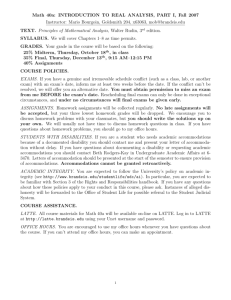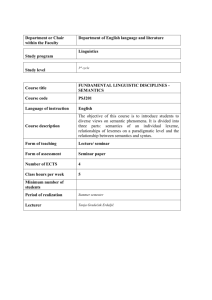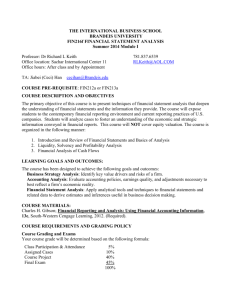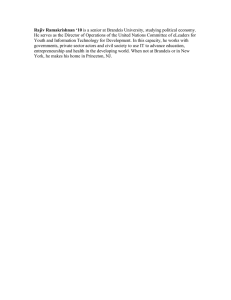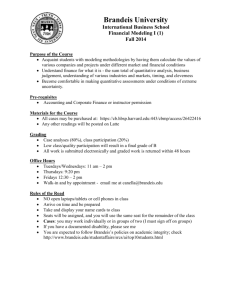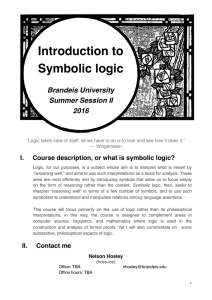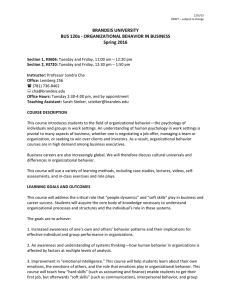Ling 130. Formal Semanics: truth, meaning, and language. Syllabus: Spring 2016
advertisement
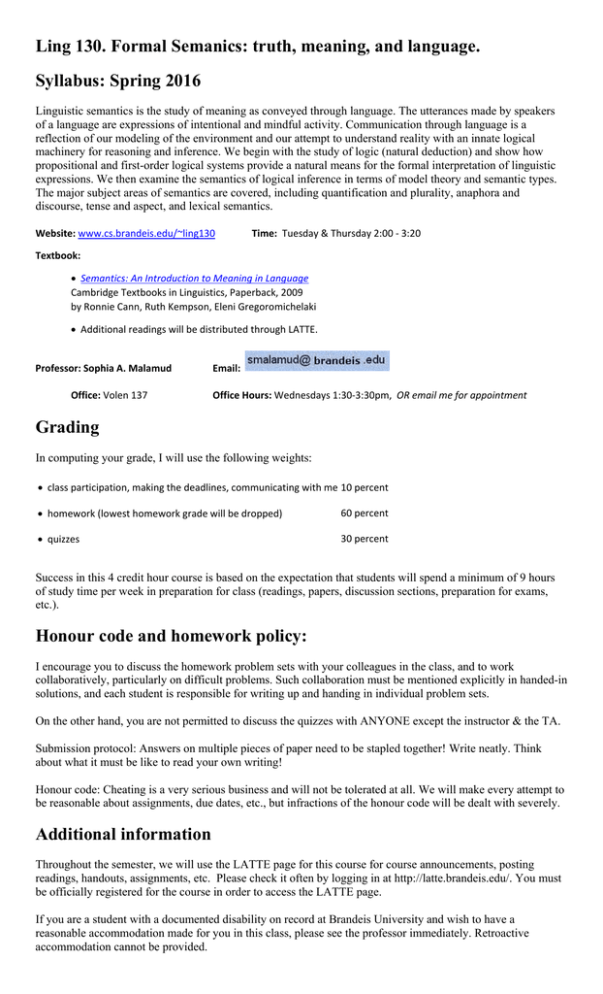
Ling 130. Formal Semanics: truth, meaning, and language. Syllabus: Spring 2016 Linguistic semantics is the study of meaning as conveyed through language. The utterances made by speakers of a language are expressions of intentional and mindful activity. Communication through language is a reflection of our modeling of the environment and our attempt to understand reality with an innate logical machinery for reasoning and inference. We begin with the study of logic (natural deduction) and show how propositional and first-order logical systems provide a natural means for the formal interpretation of linguistic expressions. We then examine the semantics of logical inference in terms of model theory and semantic types. The major subject areas of semantics are covered, including quantification and plurality, anaphora and discourse, tense and aspect, and lexical semantics. Website: www.cs.brandeis.edu/~ling130 Time: Tuesday & Thursday 2:00 ‐ 3:20 Textbook: Semantics: An Introduction to Meaning in Language Cambridge Textbooks in Linguistics, Paperback, 2009 by Ronnie Cann, Ruth Kempson, Eleni Gregoromichelaki Additional readings will be distributed through LATTE. Professor: Sophia A. Malamud Office: Volen 137 Email: Office Hours: Wednesdays 1:30‐3:30pm, OR email me for appointment Grading In computing your grade, I will use the following weights: class participation, making the deadlines, communicating with me 10 percent homework (lowest homework grade will be dropped) 60 percent quizzes 30 percent Success in this 4 credit hour course is based on the expectation that students will spend a minimum of 9 hours of study time per week in preparation for class (readings, papers, discussion sections, preparation for exams, etc.). Honour code and homework policy: I encourage you to discuss the homework problem sets with your colleagues in the class, and to work collaboratively, particularly on difficult problems. Such collaboration must be mentioned explicitly in handed-in solutions, and each student is responsible for writing up and handing in individual problem sets. On the other hand, you are not permitted to discuss the quizzes with ANYONE except the instructor & the TA. Submission protocol: Answers on multiple pieces of paper need to be stapled together! Write neatly. Think about what it must be like to read your own writing! Honour code: Cheating is a very serious business and will not be tolerated at all. We will make every attempt to be reasonable about assignments, due dates, etc., but infractions of the honour code will be dealt with severely. Additional information Throughout the semester, we will use the LATTE page for this course for course announcements, posting readings, handouts, assignments, etc. Please check it often by logging in at http://latte.brandeis.edu/. You must be officially registered for the course in order to access the LATTE page. If you are a student with a documented disability on record at Brandeis University and wish to have a reasonable accommodation made for you in this class, please see the professor immediately. Retroactive accommodation cannot be provided.
